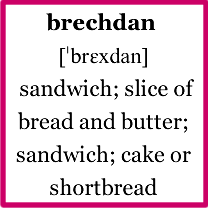Almost everyone uses language, so inevitably almost everyone thinks they are an expert in it. I don’t consider myself an expert, though most of my work requires at least language competence and sometimes actual skill, but I do follow the blogs featured on this feeds page.
(If you are wondering where the translation-related feeds have all gone, I have put them on their own page.)
Most of the blogs represented here are in English, most of the time, but don’t be surprised to find other languages used. Go with the flow – I occasionally find myself pleasantly surprised at how much I can grasp in languages I have never seen before.
Language On the Net
Language Log » Inverting inversely
Paul Kay wrote to point to a sexist joke that inverts a scalar predicate, in a way that's similar to what happens in the "No head injury is too trivial to be ignored" / "No wug is too dax to be zonged" type of misnegation: The speed in which a woman says "nothing" when asked "What's wrong?" is inversely proportional … [Link]
Language Log » Fox redux
Melvin Jules Bukiet, "What's Your Pronoun?", The Chronicle Review 9/21/2015: [H]aving learned to adapt to unexpected or previously unknown pronouns, I am confronted by a new wrinkle in the language of identification. As one of the staff members at the college where I teach recently informed the faculty, "Some of the students will prefer to be referred to as ‘they.’ … [Link]
Language Log » Bèibèi panda
Bloix asked: Can someone tell me if the name of the new panda cub, Bei Bei, really means "precious treasure"? If it does, how does that work? Does Bei mean treasure and the duplication is emphasis? Or what? It's Bèibèi 贝贝, where bèi 贝 means "shellfish, cowrie; money, currency; valuables". Whoever did the translation was being a little bit free … [Link]
Omniglot blog » Custard sandwiches and pancakes
 The Welsh word for sandwich is brechdan [ˈbrɛxdan], which comes from the Irish word brechtán (butter, fat), according to the Geiriadur Prifysgol Cymru. However according to MacBain’s Dictionary, is related to the Scottish Gaelic word for pancake, breacag, which is related to breachdan (custard), which comes from the Middle Irish breachtán (a roll), which is related to the Welsh words … [Link]
The Welsh word for sandwich is brechdan [ˈbrɛxdan], which comes from the Irish word brechtán (butter, fat), according to the Geiriadur Prifysgol Cymru. However according to MacBain’s Dictionary, is related to the Scottish Gaelic word for pancake, breacag, which is related to breachdan (custard), which comes from the Middle Irish breachtán (a roll), which is related to the Welsh words … [Link]

0 responses so far ↓
There are no comments yet...Kick things off by filling out the form below.
You must log in to post a comment.